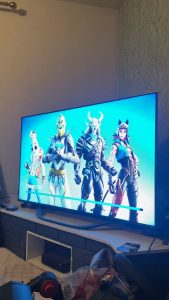Netflix, 2K, and Take-Two Interactive announced on Tuesday that they will collaborate on a live-action BioShock film. While it’s a potentially thrilling announcement, there aren’t many information beyond the movie’s existence.
There is no release date set, and Variety reports that the film has yet to find a director or cast. And, according to Netflix’s website, the film is based on the BioShock franchise, which means it might include characters and locations from BioShock 1 and 2’s underwater metropolis of Rapture, as well as BioShock Infinite’s sky city of Columbia.
Also read: Google issues new fix for major Chrome security exploit: How to update
Netflix did, however, release a press image portraying a frightening Little Sister and a powerful Big Daddy, so it’s a safe guess that those classic BioShock characters will appear in some capacity.
Take-Two-owned 2K is also working on the “next iteration” of a BioShock game, though the company stated in December 2019 that the game will be in development for “the next several years.” Given the game’s ongoing development and the planned film, it appears like 2K and Take-Two aim to expand the BioShock franchise even further than it already is.
Also read: GTA VI development well underway, says Rockstar: When is the game expected?
“Netflix is among the best and most forward-thinking storytellers in all of entertainment today,” Strauss Zelnick, CEO of Take-Two Interactive, stated in a statement.
“We are thrilled that they share our vision and commitment to the BioShock franchise, which is beloved by millions of fans around the world. 2K’s Cloud Chamber studio is deep in active development on the next iteration of the series, and coupled with our partnership with Netflix, we remain highly confident that BioShock will continue to captivate and engage audiences like never before.”
Also read: Sony to buy ‘Halo’ game developer Bungie in $3.6 billion deal
Universal held the rights to create a BioShock film at one point, and Gore Verbinski, the director of Pirates of the Caribbean, was attached to the project, but it was later scrapped.






